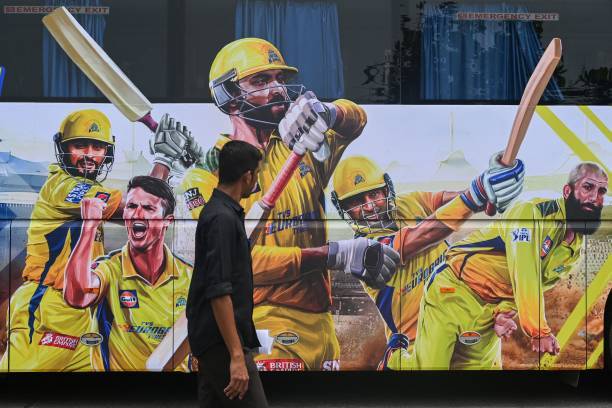Digital Transformation in IPL Marketing: From Traditional to Digital Platforms
Cricbet99, Apbook: Over the years, the marketing strategies employed in the Indian Premier League (IPL) have seen a significant evolution. From the inception of the league, where traditional advertising methods like television commercials held sway, to the present scenario where a more integrated and multi-platform approach is favored, there has been a notable shift in the way brands connect with their audience during the IPL season.
As the IPL grew in popularity and viewership, marketers realized the need to adapt to changing consumer behavior and preferences. This led to the exploration of innovative tactics such as experiential marketing, influencer partnerships, and content-driven campaigns to create a more engaging and immersive brand experience for the audience. By constantly evolving and experimenting with new strategies, marketers have been able to stay relevant and capture the attention of the diverse and dynamic IPL audience.
Heading 2: Shift from Television Ads to Social Media Campaigns
With the meteoric rise of social media platforms over the past decade, the landscape of marketing in the Indian Premier League (IPL) has undergone a significant transformation. Traditionally, television ads were the primary means through which brands reached their target audience during IPL matches. However, in recent years, there has been a notable shift towards utilizing social media campaigns to engage with fans in a more interactive and impactful manner.
Social media platforms such as Facebook, Instagram, and Twitter have provided IPL teams and sponsors with a direct channel to connect with fans in real-time, creating a more personalized and engaging marketing experience. By leveraging the power of social media, brands can now tailor their messaging to specific demographics, target niche audiences, and track the impact of their campaigns in real-time. This shift has not only allowed for more targeted and cost-effective marketing strategies but has also opened up new opportunities for brands to create innovative and creative content that resonates with fans on a deeper level.
• Social media platforms such as Facebook, Instagram, and Twitter have become key channels for IPL teams and sponsors
• Real-time engagement with fans allows for a more personalized marketing experience
• Target specific demographics and niche audiences through social media campaigns
• Track the impact of campaigns in real-time for better insights and adjustments
• More cost-effective and targeted marketing strategies can be implemented through social media
• Opportunity to create innovative and creative content that resonates with fans on a deeper level
Heading 3: Utilizing Data Analytics for Targeted Marketing
Data analytics has revolutionized the way marketing is approached in the world of sports, particularly in tournaments like the Indian Premier League (IPL). By harnessing the power of data analytics, teams and sponsors are now able to delve deep into consumer behavior patterns and preferences, allowing for more personalized and targeted marketing efforts. This shift towards data-driven marketing strategies has allowed for a more efficient allocation of resources, ensuring that promotional activities are reaching the right audience at the right time, ultimately leading to higher engagement and conversion rates.
In addition to aiding in the identification of target audiences, data analytics also plays a crucial role in assessing the effectiveness of marketing campaigns in real-time. Through the analysis of key performance indicators and engagement metrics, marketing teams can make timely adjustments to their strategies to maximize impact and ROI. This iterative approach to marketing not only enhances the overall effectiveness of promotional initiatives but also enables marketers to stay agile and responsive in an ever-evolving digital landscape.
How can data analytics help in targeted marketing?
Data analytics can help in targeted marketing by providing insights into customer behavior, preferences, and buying patterns. This data can be used to create personalized marketing campaigns that are more likely to resonate with the target audience.
What are some ways data analytics can be utilized for targeted marketing in the IPL?
Data analytics can be used to analyze fan engagement on social media, track ticket sales trends, identify key demographics, and even predict future trends in the market. This information can then be used to tailor marketing strategies specifically for the IPL audience.
How has the shift from television ads to social media campaigns impacted marketing strategies in the IPL?
The shift from television ads to social media campaigns has allowed for more targeted and personalized marketing efforts. Marketers can now reach a larger audience at a fraction of the cost, while also being able to track and analyze the effectiveness of their campaigns in real-time.
What are the benefits of targeted marketing in the IPL?
Targeted marketing in the IPL can lead to higher engagement rates, increased ticket sales, greater brand awareness, and ultimately, higher revenue for teams and sponsors. By leveraging data analytics for targeted marketing, teams can better connect with their fans and drive loyalty and support for the league.







